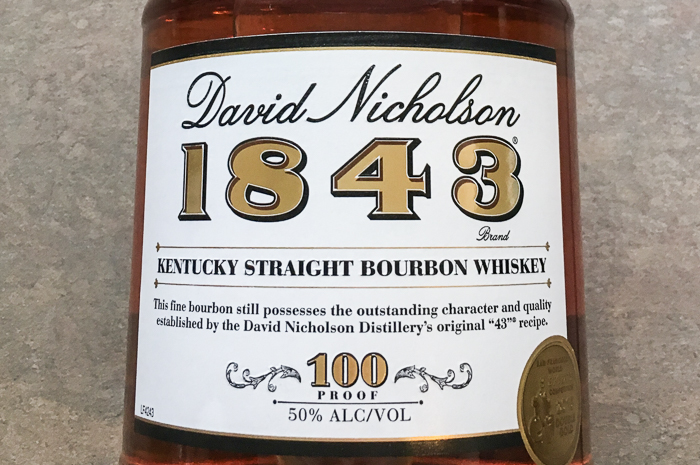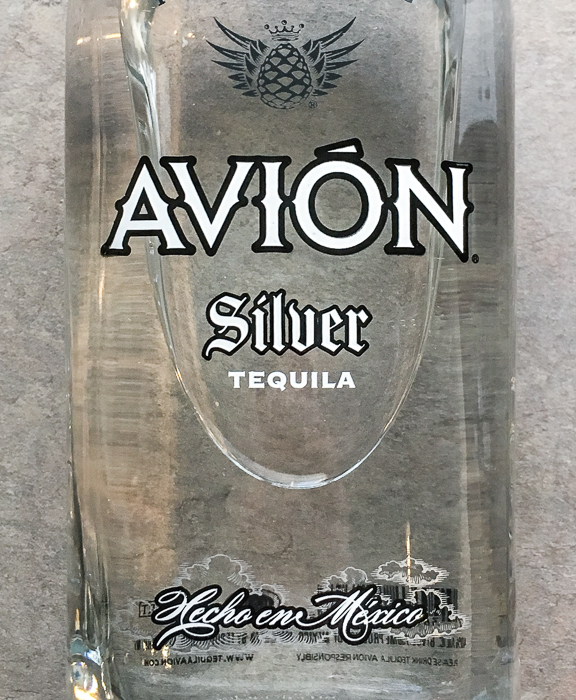Primed for Success: Luxco & Pernod-Ricard

If you would have asked me five years ago which booze companies would be primed to rule the future spirits market, I would have said Diageo, Suntory, and Sazerac without batting an eye. Pappy and Stagg were dominating our imaginations, Japanese whisky was breaking boldly, and it didn't seem like there was a ceiling for what customers were willing to pay to satiate their luxurious thirsts with Brora and Port Ellen. Today, while all three of these companies are still enjoying tremendous success, shortages and supply issues have provided new opportunities for hungry competitors who have used comparative value to their advantage, taking the spotlight off of the big three and casting it onto some unexpected understudies. In my opinion, those gaps in availability (as well as the increased prices as a result) have had a huge impact on that once unstoppable momentum. While I'm sure there will always be a strong market for the Buffalo Trace whiskies, Yamazaki single malts, and stalwarts like Lagavulin and Caol Ila, I've been highly impressed by the moves of two other major industry players in 2017: Luxco & Pernod-Ricard, companies that had previously yet to live up to the full potential of their portfolios. As I look at the supply and pricing issues facing the spirits industry moving into 2018, I'm betting on both companies to grow exponentially in the coming year. They have set themselves up with some of the best bang-for-your-buck brands on the current market and the only thing holding them back at this point is consumer awareness. In today's modern age, the customers will come to you once they sniff out the next great deal. In my opinion, both Luxco and Pernod-Ricard are in possession of some of the most underrated spirits in the business and are working hard to change that perception.
Let's start with Luxco, a company that has long been more of a bottom-bin bulk bottler than a serious player in the whiskey game. The St. Louis-based organization was always more of a specialist in cream liqueurs and Everclear than fine Kentucky Bourbon. However, that all changed over the last few years as the company revamped its Rebel Yell line-up, creating new labels and new packaging, while maintaining the brand's two most important qualities: quality and price. It's amazing the difference a little cosmetic surgery can make. We went from selling almost no Rebel Yell to selling cases and cases on a weekly basis once the new bottles hit the shelves. Rebel Yell's entry level wheated Bourbon is still $12.99, an almost shocking discovery for a whiskey so creamy and delicious. It's actually so inexpensive that I actually have a sign up on the shelf telling customers not to be scared off by the low price! In a market where people are practically looking for excuses to raise their prices, Luxco has held fast to its low-cost roots and that mindset has endeared both me and my honest, whiskey-drinking customers to the cause. However, it wasn't until the two David Nicholson whiskies came along that I really understood Luxco's power potential.
I'll say it here now as it's as good of a time as any: if I had to pick a Whisky of the Year for 2017, it would be the David Nicholson 1843 Kentucky Straight Bourbon with a bullet. I'm not sure how many people care about what I think in the realm of titles and declarative statements, but I know that numbers don't lie. Since I brought in the David Nicholson and began offering it to K&L customers as a Weller 107 substitute, I've been hard-pressed to keep the whiskey in stock. We've sold hundreds and hundreds of bottles in a matter of months and it's forced me to look at a whiskey's value in terms of its practicality and utilitarianism. Can you easily find it? Is it worth the price? Does it taste good? Does it represent value? In answering those four important questions, the David Nicholson 1843 provided the year's best responses. There's plenty of it (for now), it's well under $30, it's a classic wheater in the vein of Weller 107, and in a Pappy-crazed Bourbon market there are few high-proof wheated alternatives that taste this good for this price. Granted the Nicholson isn't necessarily a new whiskey, but we didn't get it out west until earlier this year; hence my excitement. Also, while not wheated, I wouldn't snooze on the Nicholson 100 proof Reserve for $32.99, especially if you're a fan of the Elijah Craig Barrel Proof or Blanton's. It has richness and punch for a pretty great price.
If Luxco can continue to rebrand and rebuild brands like Ezra Brooks, while continuing to develop its new Lux Row Bardstown distillery and Limestone Branch facility, there's definitely a chance for them make serious headway in 2018. They can grab serious market share if other distillers continue to face shortages for their most popular expressions, providing quality, no-frills whiskies for everyday drinkers in search of something off the beaten path.

While Pernod-Ricard has made incredible strides with Aberlour, Glenlivet, and Chivas over the past few years, it's their relatively new-found commitment to real Tequila that has me buzzing. I'll be honest about my bias and sometimes harmful prejudices when it comes to agave spirits: the more I've learned about diffusers over my career, the less interested I am in supporting the distilleries who use them. If anyone wants to muckrake and dig up a story about a harmful and shoddy practice in the booze game, the Tequila industry's use of this dreadful machine would make a powerful dossier. It's because I've always linked Avion to a distillery known for its sweet-tasting, caramel-laden, glycerol-riddled spirits that I've generally brushed it aside in the realm of fine Tequilas. However, in a recent sitdown with Pernod-Ricard I learned a very important distinction: while Avion is indeed distilled at NOM 1416 Productos Finos, the label has its own independent production center within the distillery and is made separately from the rest of the brands—separate stills, separate fermentation tanks, the whole shebang. I thought Pernod-Ricard was batshit crazy when they paid $100 million to buy Avion back in 2014, but tasting the Silver again this week it was I who was definitely the crazy one. I not only did a double-take upon savoring that Tequila, I did a triple-take and a quadruple-take as well. This wasn't the Avion I remembered or was expecting. This was bright, fresh, fruity, expressive, and nuanced blanco Tequila in the vein of my favorite ArteNOM 1079 expressions from Jesus-Maria.
It turns out there was a good reason for that comparison: Avion sources its agave from the same high elevation Jesus-Maria mountains. This wasn't manipulated, sweetened, and airbrushed agave caramel water by any means. Instead, it was the best blanco Tequila I'd tasted all year and it clocked in at $35. As I mentioned earlier with Luxco, Pernod-Ricard is going against the luxury market game plan here: they've locked down a great tasting Tequila, made from flavorful and ripe Highland agave, and they've got it in the bottle for a great price—actually less expensive than our previous costs. They've also recently updated the Avion package, added new tins that made it look a bit more high end on the shelf, and modified the message. Now it's just a matter of letting people know. If they're adding anything to Avion at this point or using a diffuser, they've got me fooled. I've gone back and tasted this thing ten times now and I'm still downright impressed. If Pernod-Ricard can get the right marketing in place and place itself against the chemically-enhanced competitors on the market right now, Avion could be primed to pop.
It's a come a long, long way since Entourage.

The reason I'm talking about Pernod-Ricard's Tequila and not their outstanding whisky updates like the Chivas Ultis, a blended malt expression that beats the pants off of Johnnie Blue and other name brand marks, is because the company has done a fantastic job of diversifying its assets. You put all your eggs in one whisky basket and you risk everything, in my opinion. Much like we did here in the K&L spirits department years ago, once we locked down the single malt and Bourbon sources we didn't let up there. It was then time to start working on bringing other categories like Cognac and Armagnac up to speed. Pernod-Ricard is sitting on a sleeping giant with Martell Cognac and just a few slight tweaks could change everything for this old man brand. While I've talked myself silly in meetings with Hennessy and Remy, stressing a need to adapt to the modern consumer, Martell is the one Cognac giant that seems to be actually headed down that path. I tasted the new rebranded VS this week, along with a new Bourbon barrel-aged VSOP called "Blue Swift." Both expressions cut way back on the caramel and boisé, while accentuating the fruit and the supple character inherent in the brandy itself. At $29.99, the Martell VS Fine is instantly the best bang for your buck on the K&L Cognac shelf, aromatic on the nose, smooth on the palate, and pure in its richness on the finish. Much like with the Avion, I was forced to rethink my previous prejudice and entertain the fact that Pernod-Ricard might be the one big brand booze company that's really getting its shit together!
In my opinion, it's not going to be some new distillery that blows us spirit drinkers away in 2018. It's going to be the company that can best provide value while maintaining modern standards of quality at a level that satisfies expectations for today's internet savvy consumer. For Bourbon drinkers, I don't think any company has provided a better example of that duality in the whiskey category as of late than Luxco. As for everything else, you'd better watch out for Pernod-Ricard. They've retooled Midleton, Aberlour, Chivas, Hiram Walker, and Plymouth while obtaining Avion, Monkey 47, and Smooth Ambler in the process. If they can get Martell functioning on the same level and tap into the real potential of Longmorn, there's no stopping them.
-David Driscoll
